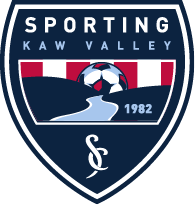As a parent, you play a special role in the development of your daughter or son, and of his/her teammates. Your encouragement and good example will do more to ensure good sportsmanship and self-discipline than any other influence. The other team is the opponent, not the enemy, and should be treated with respect. While winning is important, playing well and fairly is the essence of the game.
SUPPORT YOUR CHILD
Support your child by giving encouragement and showing interest in his/her team. Help your child work toward skill improvement and good sportsmanship in every game. Teach your child that hard work and an honest effort are often more important than victory.
BE SUPPORTIVE AND YOUR CHILD'S BIGGEST CHEERLEADER
Children learn more by example than by criticism. Work to be a positive role model, and reinforce positive behavior in others. Applaud good plays by others on your child's team as well as good plays by the opposing team. Do not criticize any child’s performance from the sidelines. Accept the results of each game. Teach your child to be gracious in victory and to turn defeat into victory by learning and working toward improvement.
DON'T BE A SIDELINE COACH OR REF
Refrain from coaching or refereeing from the sidelines. Parents who shout or scream from the sidelines often give inappropriate advice at the wrong time. The coach should be the only sideline voice. Remain well back from the sidelines and within the spectator area. You and your child will both enjoy the game more if you put some emotional distance between yourself and the field or play. Officials are symbols of fair play, integrity and sportsmanship - Do not openly question their judgment or honesty.
DEMONSTRATE A POSITIVE ATTITUDE TOWARD YOUR OPPONENTS AND THEIR FAMILIES
Opponents are not enemies. Take care to show good hospitality at home and to represent SKV in a positive way when playing other clubs. Never allow yourself to be drawn into a verbal disagreement with opposing parents or coaches. No one has ever regretted letting “cooler heads prevail.”
REMEMBER THAT YOUR CHILD WANTS TO HAVE FUN
Your child is the one playing soccer, not you. Children must establish their own goals - to play the game for themselves. Take care not to impose unreasonable demands on your child. Let your children experience the fun of playing as well as the challenge of excelling.

